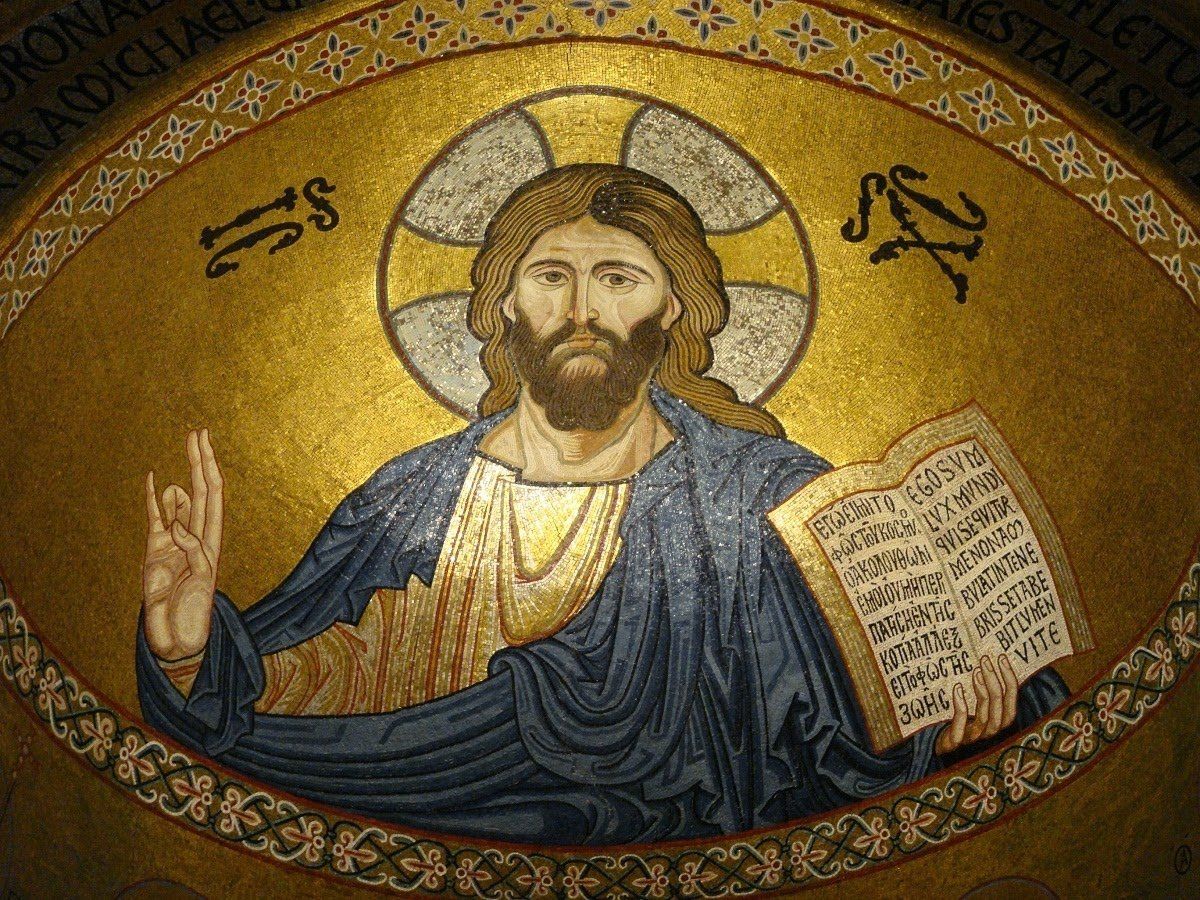Message of Abbot Paul - Christ the King

Message from Fr Paul for Sunday, 21st November 2021
The feast of Christ the Universal King was established by Pope Pius XI in 1925 to be kept on the last Sunday in October. It immediately became very popular in the Catholic Church, but like all modern feasts it celebrates an idea, a concept, rather than a historical event in the life of Our Lord or our Lady or in the history of the Church. When the Calendar was revised under Pope St Paul VI in 1969, the feast was transferred to the last Sunday in the Liturgical Year as perhaps more appropriate at a time when we contemplate the end of the age and the Second Coming of Jesus as Lord of Creation and Judge of all mankind. Even so, it does seem strange to read a small portion of the Passion account from John’s Gospel, (Jn 18: 33-37), during today’s Mass. Here is the text, part of Pilate’s interrogation of Jesus as to whether he is the king of the Jews.
“‘Are you the king of the Jews?’ Pilate asked. Jesus replied, ‘Do you ask this of your own accord, or have others spoken to you about me?’ Pilate answered, ‘Am I a Jew? It is your own people and the chief priests who have handed you over to me: what have you done?’ Jesus replied, ‘Mine is not a kingdom of this world; if my kingdom were of this world, my men would have fought to prevent my being surrendered to the Jews. But my kingdom is not of this kind.’ ‘So you are a king then?’ said Pilate. ‘It is you who say it’ answered Jesus. ‘Yes, I am a king. I was born for this, I came into the world for this: to bear witness to the truth; and all who are on the side of truth listen to my voice.’”
Pilate’s worry is that Jesus will become the leader of a popular uprising against the Roman occupation and that his follows will want to make him king. We know that many of Jesus’ followers and disciples were hoping for this and hadn’t, even now, grasped the true meaning of his teaching, that his “kingdom is not of this world.” Jesus gives and he receives, and asks as many questions as he answers. Pilate cannot even begin to imagine or understand what Jesus is saying, that “My kingdom is not of this world.” Jesus admits to being a king, but not the sort of king the Romans should fear, unless, of course, they feared the truth. Sadly, the text stops short of verse 38, in which Pilate replies by asking, “What is truth?” Jesus is a king who witnesses to the truth, the truth about God and the truth about himself, who is true God and true man. In fact, Jesus is being even more revolutionary that Pilate imagines, for he’s saying that the Roman Empire is built of the lie of false gods, beginning with the emperor, who considered himself to be a god worthy of worship glory and honour. Jesus, on the other hand, is king of the kingdom which is founded on the one true and only God, Creator of heaven and earth, Saviour and Sanctifier, Father, Son and Holy Spirit. Let’s pray today that we, with Christ and through the Spirit, may always witness to the truth in our lives to the honour and glory of our heavenly Father. Amen.









